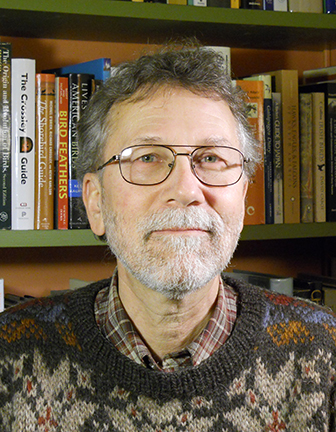Wagoner Honored by American Historical Association for South Asian History Scholarship


On Oct. 5, Phillip Wagoner, professor of art history, professor of archaeology, was named a co-recipient of the American Historical Association’s John F. Richards Prize in South Asian History. The John F. Richards Prize recognizes the most distinguished work of scholarship on South Asian history published in English. Eligibility includes books on any period or field of South Asian historical studies and works which integrate South Asian history with broader global issues and movements.
Wagoner shares the prize with Richard Eaton of the University of Arizona. Together, they co-authored the book, Power, Memory, Architecture: Contested Sites on India’s Deccan Plateau, 1300–1600, published by Oxford University Press in March 2014.
In this book, Wagoner and Eaton examine the political histories and material culture of smaller, fortified strongholds both on the plains and atop hills, the control of which was repeatedly contested by rival primary centers on the Deccan Plateau. Exceptionally high levels of conflict over such secondary centers occurred between 1300 and 1600, and especially during the turbulent 16th century when gunpowder technology had become widespread in the region.
The authors bring two principal objectives to the enquiry. One is to explore how political power, monumental architecture, and collective memory interacted with one another in the period under study. Eaton, who is trained in history, and Wagoner, an expert on art history and archaeology, argue for systematically integrating the methodologies of history, art history, and archaeology in attempts to reconstruct the past. The study’s other aim is to radically rethink the usefulness of Hindu-Muslim relations as the master key by which to interpret this period of South Asian history, and to propose instead a model informed by the Sanskrit and Persian literary traditions.
Their 436-page book interests scholars, teachers and students of Indian history, medieval India, regional studies and archaeology.
“Apart from being an honor, this is especially poignant for both of us given the part John played in our intellectual development. I can’t think of any prize I’d rather have won,” Wagoner said.
At Wesleyan, Wagoner’s research focuses on the cultural history of the Deccan region of South India, primarily in the late medieval and early modern periods (1200-1600). His primary interest is in the historical interactions between the region’s established Indic culture and the Persianate culture that arrived when the Delhi Sultanate annexed the region in the early 14th century. To study the dynamics of this process, he relies on a broad range of literary, epigraphic, architectural, and archaeological evidence, gathered over the course of numerous trips to the field since the early 1980s. This semester, he is teaching Empire And Erotica and Classical Indian Thought.
The American Historical Association will honor Wagoner during its 130th annual meeting, Jan. 7, 2016 in the Hilton Atlanta’s Grand Ballroom. Since 1896 the association has conferred more than 1,000 awards honoring exceptional books, distinguished teaching and mentoring in the classroom, public history and other historical projects.
This year’s finalists were selected from a field of almost 1,500 entries by nearly 100 dedicated prize committee members. The names, publications, and projects of those who received these awards are a catalogue of the best work produced in the historical discipline.
See other American Historical Association 2015 prize winners here.

